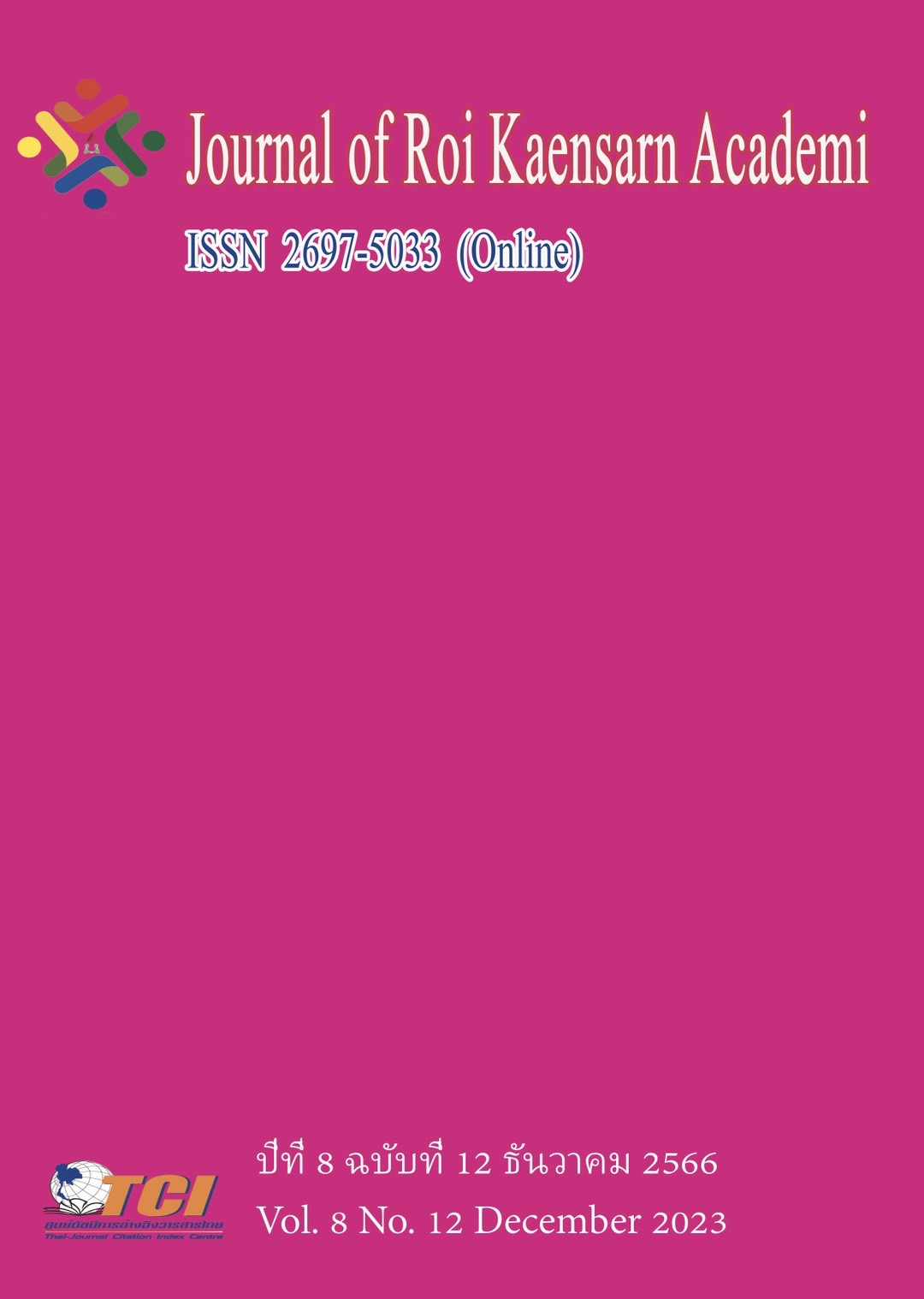The Development of Environmental Education Curriculum Based on Community Participation to Promote Senior High School Students’ Environmental Conservative Mind
Main Article Content
บทคัดย่อ
The environmental education curriculum based on community participation makes full use of the excellent teaching resources in the community to serve environmental teaching; lets students go out of school to receive environmental education in nature; and takes rich comprehensive practical activities as the teaching carrier, so that students can experience and realize knowledge in the activities. Compared with the mode of infiltration education in school, the mode of environmental education based on community participation is more popular among students and achieves better educational results.
The objectives of this research were: 1) to investigate the current situation and effectiveness of high school environmental education curriculum and high school students' environmental conservative mind, 2) to develop an environmental education curriculum based on community participation, and 3) to implement the environmental education curriculum based on community participation and to compare the differences in environmental conservative mind of high school students before and after the implementation of the environmental education curriculum based on community participation.
This study used quantitative methods to explore the differences in environmental conservative minds of high school students before and after the implementation of the environmental education curriculum based on community participation. Based on the two characteristics of "community participation" and "localization of content", the researchers developed an environmental education curriculum through questionnaire surveys and educational experiments. A total of 234 high school students were selected to investigate the current situation and effectiveness of the environmental education curriculum in senior high schools and environmental conservative mind of students in the first grade of Zhanjiang No. 20 Middle School, and 30 high school students participated in the newly developed environmental education curriculum. After the implementation of the environmental education curriculum, the environmental conservative mind of high school students increased significantly.
Article Details
เอกสารอ้างอิง
Chen, Lanlan & Yu, Yifeng. (2022). Progress of environmental education research at home and abroad. Journal of Cooperative Economics and Technology, (10), 154-157.
Chen,Y.C. & Hu, W.F (2011). Environmental Education in Zhanjiang Mangrove National Nature Reserve, Guangdong, China. Journal of Wetland Science and Management(03),67-70.
Hong, D. Y.. (1998). Comprehensive Judgment and Sampling Analysis of Citizens' Environmental Awareness.Journal of Science and Technology Herald ,(9),13-16.
Intarasompun, W., Muangnual, P., and Punchatree, N. (2022). Active Learning Management and Using E-Portfolio as Authentic Assessment for Teacher Students. Journal of Yanasangvorn Research Institute Mahamakut Buddhist University, 13(2),108–118. Retrieved from https://so04.tci-thaijo.org/index.php /yri/article/view/262856
Li,J.h. (2004). Theoretical system and implementation case study of environmental education ,Nanjing Normal University, Nanjing.
Niu, C.F.. (2006). Research on the Development of Local Curriculum for Environmental Protection , Northeast Normal University, Changcun.
Shen,G.B. (2004). Research on the connotation of environmental consciousness. Journal of Heilongjiang Environmental Bulletin,(02),9-10.
Tosati, S. ., Sitthisopasakul, T., and Intarasompun, W. . (2021). Enhancing Learning Process by Integrating Contemplative Education Coaching System and Research Base Learning (Ccr) to Strengthen Teacher’s Competencies in Educational Measurement Evaluation and Research Program, Faculty of Education, Bansomdejchaopraya Rajabhat University. Journal of Modern Learning Development, 7(1),124–137.
Wang,Y.&Z,Y.l.&Song,Z.S.&Li,X. & Yao, L. (2018). A Survey on Environmental Protection Knowledge, Attitude and Behavior of Middle School Students in Tangshan City and Exploration of Their Influencing Factors,Journal of North China University of Science and Technology,(3),224-228.
Wichean Intarasompan, and Jittawisut Wimuttipanya (2021). A quality in education of lower central network school with coaching and mentoring pass online system. Turkish Journal of Computer and Mathematics Education. Vol.12 No. 8 (2021). Retrieved from https://turcomat.org/index.php/turkbilmat/article/view/3819
Xing,l.Z.,&You,G.&Jia,N. (2004). A Survey Report on Environmental Behavior of Middle School Students. Journal of Capital Normal University,4(10),14-17
Yang,C.F. (1992). A study on the connotation of environmental awareness. Environmental Protection,(4),26-28.
Zheng,X.(2009).Comparative Study of School-Community Environmental Education Models at Home and Abroad ,Unpubilished doctorial, Southwest University,Chongqing.
Zhou, L. & Hong, J. M.. (2008). Exploring the utilization of environmental education curriculum model in primary and secondary schools in China. Journal of Capital Normal University, (04), 79-83.
Zhu, Q. h. (2006). Research on the Current Situation of Environmental Awareness of Secondary School Students in Shizhu County and the Development of School-Based Curriculum on Environmental Education,Southwest University,Chongqing.

